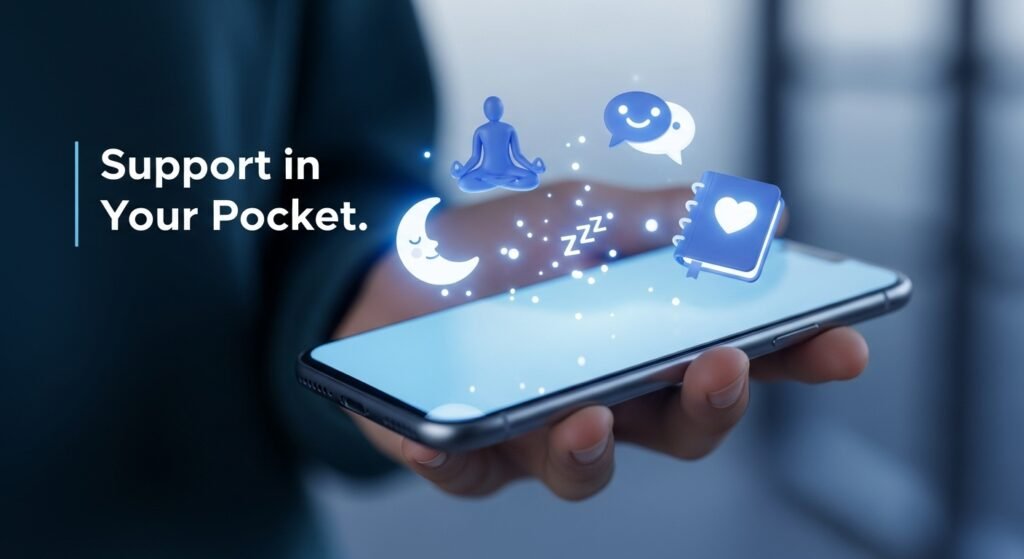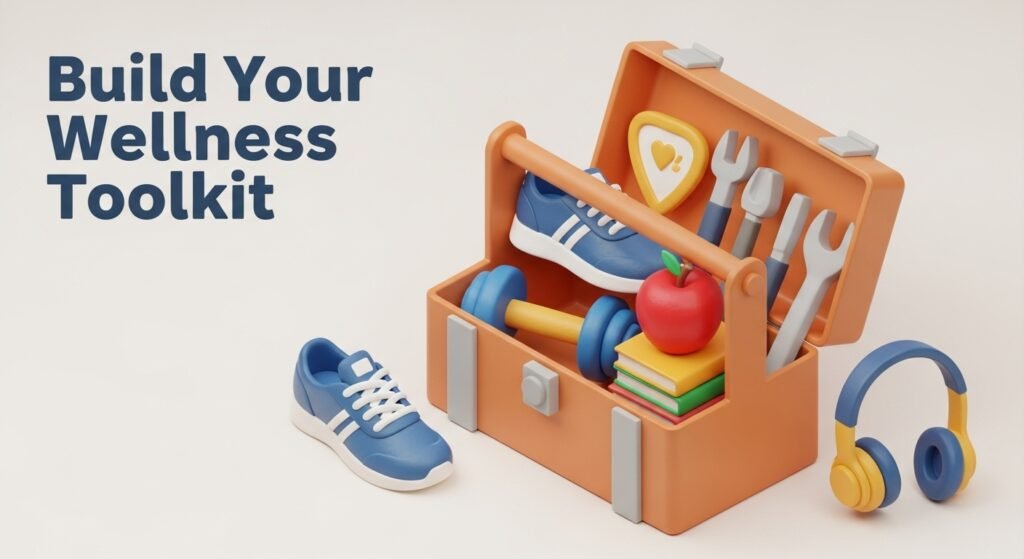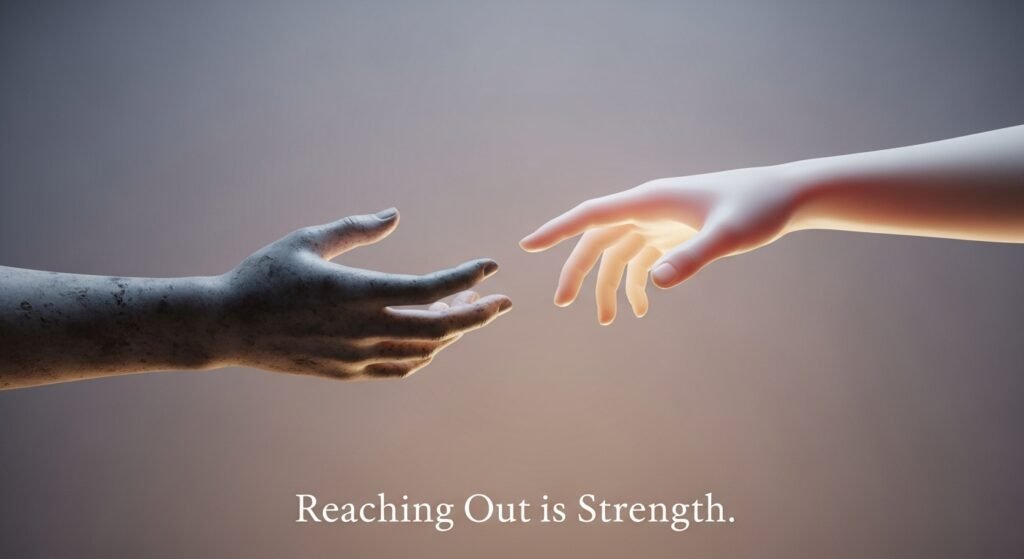Thriving, Not Just Surviving: Your Guide to College Mental Health in 2025
Let’s be honest: college is a pressure cooker. It’s a whirlwind of new freedoms, demanding classes, late-night study sessions fueled by questionable coffee, and the constant, quiet hum of trying to figure out who you are. It’s exciting, yes, but it can also be incredibly isolating and overwhelming. This intense balancing act can take a serious toll on your mental health, and in 2025, acknowledging this isn’t just important—it’s essential for your success and well-being.
If you’ve ever felt like you’re the only one struggling to keep your head above water, I want you to hear this loud and clear: you are not alone. The landscape of student mental health is changing. The hushed whispers about anxiety and depression are becoming open, honest conversations. More importantly, the resources available to you are more robust and accessible than ever before. This isn’t just another generic list; this is your practical, no-nonsense guide to navigating the resources that can help you thrive, not just survive, your college years.
From Silent Struggle to Open Dialogue: A Personal Look Back
When I was in college, the conversation around mental health felt vastly different. It was something you dealt with behind closed doors. I remember feeling the heavy weight of imposter syndrome, convinced that everyone else had it all figured out while I was silently panicking about a paper or feeling a wave of social anxiety in a crowded dining hall. The campus counseling center felt like a place for “serious problems,” and the stigma was thick enough to cut with a knife.
Thankfully, the culture is shifting. Today’s students are entering a world that, while still imperfect, is far more willing to acknowledge that your mental health is just as important as your physical health. This shift has paved the way for a more integrated and compassionate approach to student wellness, combining traditional support with innovative new tools.
Social Media’s Effect on Teen Mental Health

Your First Port of Call: Unpacking On-Campus Resources
Before you even open a new tab on your browser, your most powerful resources are likely just a short walk away. Your university’s on-campus services are designed specifically for students, meaning they understand the unique pressures you’re facing.
The Counseling Center: More Than Just a Couch
Think of your campus counseling center as your home base for mental health. It’s not a scary, clinical institution; it’s a confidential space staffed by professionals who get it. Here’s what they typically offer:
- One-on-One Sessions: These are short-term, confidential meetings with a licensed therapist to work through anything from academic stress and relationship issues to anxiety and depression.
- Group Therapy: There is immense power in realizing others feel the same way you do. Group sessions on topics like managing anxiety, dealing with grief, or building self-esteem can be incredibly validating.
- Crisis Support: For those moments when everything feels like too much, they offer immediate, urgent support. Make sure you have their number saved in your phone.
- Skill-Building Workshops: These aren’t therapy sessions but proactive workshops on vital life skills like mindfulness, stress management, and overcoming procrastination. They are goldmines for building your mental health toolkit.
Many centers in 2025 now offer telehealth appointments, giving you the flexibility to connect from the comfort of your own space.
Peer Support Networks: Students Helping Students
Sometimes, the most comforting person to talk to is someone who is in the trenches with you. Peer support programs are booming on campuses for this very reason. Trained students offer a listening ear and a shared perspective, creating a less intimidating first step for those hesitant to seek professional help. It’s a brilliant way to foster a campus culture that truly looks out for its own.
Top 10 Free Online English Courses with Certificates in 2025

Your Phone Can Be a Lifeline: Digital Mental Health Tools
What happens when it’s 2 AM, a deadline is looming, and your anxiety is spiking? The counseling center is closed, but your phone is right there. The digital revolution has put powerful mental health resources directly into our pockets.
While these apps aren’t a substitute for therapy, they are fantastic tools for daily maintenance, skill-building, and immediate relief. Think of them as your personal wellness kit.
Top Apps for the College Student’s Toolkit in 2025
| App | What It’s Great For | Standout Features |
| Calm | Mindfulness & Sleep | Guided meditations, calming soundscapes, and “Sleep Stories” to help you power down a racing mind after a long day. |
| Finch | Gamified Self-Care | A self-care pet you nurture by completing small, daily goals like journaling, stretching, or mood check-ins. |
| BetterHelp | Accessible Online Therapy | Matches you with a licensed therapist for ongoing support via text, audio, or video. Many universities now offer subsidized plans. |
| Sanvello | CBT & Community Support | Clinically validated techniques based on Cognitive Behavioral Therapy (CBT), mood tracking, and a peer support community. |
| Headspace | Guided Meditation & Focus | Bite-sized meditations for everything from focusing before a study session to winding down from a stressful day. |
Export to Sheets
These tools empower you to take an active role in managing your mental health, helping you build habits that will last a lifetime.
Top 10 Free Online English Courses with Certificates in 2025

Building Your Personal Wellness Toolkit: Proactive Self-Care
Resources are fantastic, but they work best when combined with a solid foundation of self-care. These aren’t indulgences; they are the non-negotiable basics for maintaining your equilibrium and fostering good mental health.
The Four Pillars of Well-Being
- Sleep is Non-Negotiable: The “all-nighter” culture is toxic to your mental health. Sleep deprivation tanks your mood, focus, and ability to cope with stress. Aim for 7-9 hours and try to maintain a consistent schedule. Your brain will thank you.
- Move Your Body: You don’t have to be a gym rat. A brisk walk between classes, a dance party in your room, or joining an intramural team are all fantastic ways to burn off stress and release mood-boosting endorphins.
- Fuel Your Brain: What you eat directly impacts how you feel. While pizza and energy drinks have their place, try to nourish your body with balanced meals. Good nutrition is foundational to stable energy and mood.
- Find Your People (and Your Alone Time): Cultivate friendships that energize and support you. But also, learn the power of saying “no.” It’s okay to skip a party to recharge. Protecting your social battery is a crucial aspect of mental health.

Knowing When to Raise Your Hand: How to Ask for Help
It’s vital to recognize the difference between a bad day and something more serious. Pushing through isn’t always the answer. If you notice any of the following signs persisting for more than a couple of weeks, it’s a signal to reach out for professional support:
- You’ve lost interest in things you used to love.
- Your sleep patterns or appetite have changed dramatically.
- You feel a persistent sense of sadness, hopelessness, or irritability.
- Concentrating on schoolwork feels impossible.
- You’re withdrawing from friends and social activities.
- You feel constantly overwhelmed and on edge.
If you ever have thoughts of harming yourself, please seek help immediately. You can call or text the 988 Suicide & Crisis Lifeline anytime, day or night.
Making that first call or sending that first email can be the hardest part, but it’s also the most courageous. Start with your campus counseling center—they will guide you from there.
Conclusion: Your Mental Health Journey is Yours to Own
College is a marathon, not a sprint. Your academic performance, your social life, and your future career all rest on the foundation of your well-being. Prioritizing your mental health is not a sign of weakness; it is the ultimate act of strength and self-respect.
You are surrounded by a growing ecosystem of support, from licensed professionals to digital tools to your own peers. Tap into these resources. Build your wellness toolkit. And most importantly, be kind to yourself through the process. Your journey through college is unique, and so is your journey with mental health. Own it, nurture it, and don’t ever be afraid to ask for the help you deserve.
What’s one strategy or resource that has helped you manage your mental health in college? Share it in the comments below—let’s create a community of support!




Pingback: Effective Online Learning Tips for Home - PaidScripts -Tech Education Hub: Courses & Student Resources
Pingback: AI Space Exploration Careers and Discoveries - PaidScripts -Tech Education Hub: Courses & Student Resources
Pingback: SEL Activities for Classroom Teachers - PaidScripts -Tech Education Hub: Courses & Student Resources